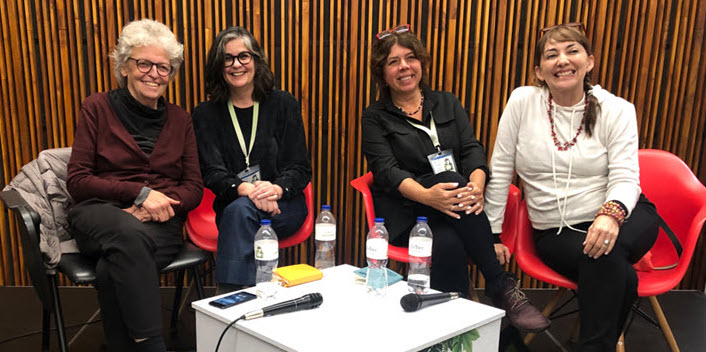She said that schools were required to buy a minimum quota of Chilean books, which meant that many publishers from outside the country would seek to publish there with Chilean ISBNs, while many Chilean publishers also buy translation rights, in order to enter into that quota. Chile now has more than 70 children’s publishers, she said.
“Many publishers buy translation rights,” she said, “because it’s very cheap to buy rights just for Chile.”
According to Osorio, while Colombian government book purchases give a publishing company a national identity, Colombian publishing is characterized by its catalogues of authors from many parts of the region.
‘Where the Responsibility of the Editor Lies’

 At the 2024 edition of the Bogotá International Book Fair. Image: Publishing Perspectives, Adam Critchley
At the 2024 edition of the Bogotá International Book Fair. Image: Publishing Perspectives, Adam Critchley
Larissa Kouzmin-Korovaeff is the publisher at Semente Editorial in Brazil and head of Libre, Brazil’s independent publishing association of some 200 companies. She said that the growth of independents in the country means the publishing landscape has changed greatly in 20 years.

 “Now it’s very democratic,” Kouzmin-Korovaeff said, “because we can all participate, and that was not possible before, when larger publishers acquired smaller ones and many disappeared, or when publishers simply imported books because it was cheaper than producing their own catalogues.
“Now it’s very democratic,” Kouzmin-Korovaeff said, “because we can all participate, and that was not possible before, when larger publishers acquired smaller ones and many disappeared, or when publishers simply imported books because it was cheaper than producing their own catalogues.
“But the Brazilian children’s publishing industry,” she said, “remains 100-percent…


























































